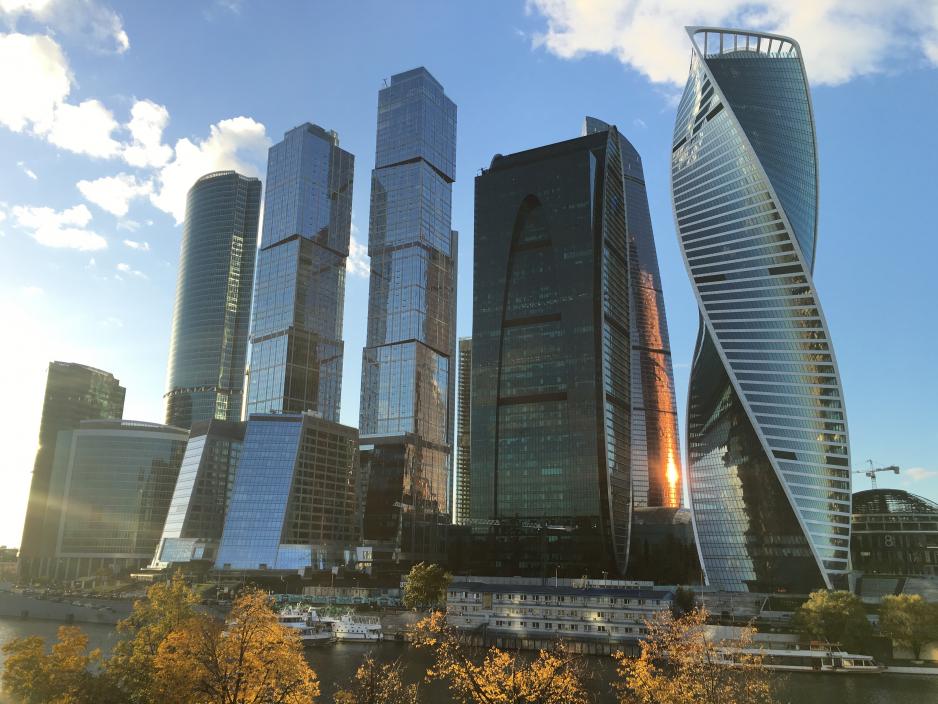Erika (22) about her six months at Norways northernmost foreign mission: - Unique!
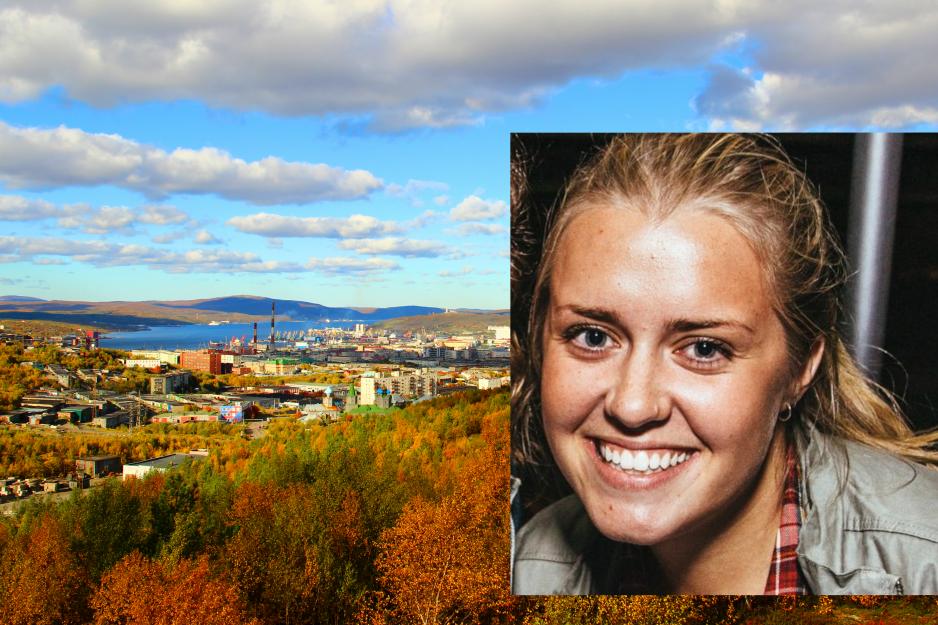
- In this biting cold I found the warmest people I have ever met, Erika Vartdal says. Below you find the 22-year old's "travelogue" from her internship with Norway's northernmost foreign mission: The Consulate General in Murmansk, Russia.
Exactly one year ago, I woke up to a most pleasant phone call. I had been offered an internship at the Norwegian Consulate in Murmansk, Russia! I was studying in Vancouver, Canada, and busy preparing for both exams and work. Little did I know then that I would soon be heading to the largest city north of the Arctic Circle. The Norwegian Consulate General in Murmansk is a large foreign mission, and it is Norway's northernmost mission abroad. Being an intern here is unique in every way – Norwegian-Russian relations go back centuries, and the Consulate General stands out as the only complete diplomatic office in the city. The people who live here have a long-lasting and strong friendship with their neighbors across the border. Many have a relation to Norway, and that brought additional excitement to my days.
The end of the world?
When I told acquaintances that I was moving to Murmansk, I was met with disbelief and skepticism. Some thought I was joking. To many people, Murmansk is associated with depopulation, neglect and isolation – the end of the world in big, scary Russia. This could not be further from the truth. Compared to a Norwegian scale, the city is both large and modern, and it offers an amazing variety of leisure activities. The best thing about it, however, is that the Kola Peninsula is full of history and has a raw, untouched nature.
Traveling from Finnmark County in Northern Norway by car, across the tundra and the historic border areas under a scorching sun and 30 degrees was an unforgettable start to my stay.
I wanted to go to Murmansk because I had developed an interest for High North policies, indigenous people's rights and border cooperation after my studies in Canada. I also wanted to practice my Russian and get to know my Russian heritage a bit better. Ever from the first day at work, I realized that I was in the right place – and a place with huge diversity. In the beginning, there was a lot to learn, and I got to read up on the Norwegian-Russian cooperation in business, culture, migration, nuclear safety and environment protection.
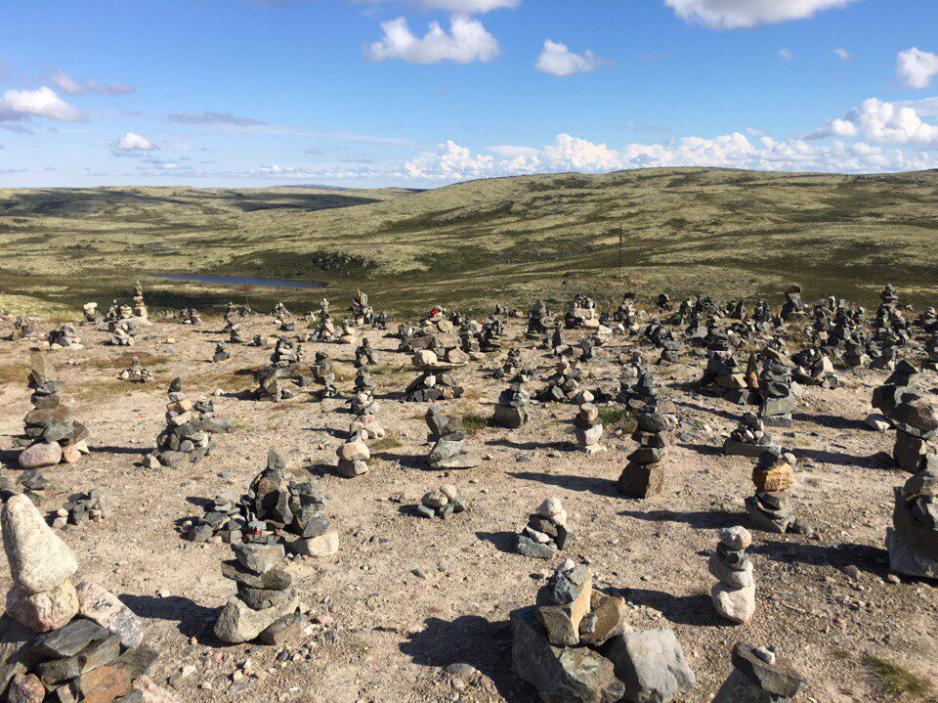
The High North is Norway's most important foreign policy area of interest, and this was reflected during my stay. The mission worked at a high speed and had several and varied activities. I was allocated tasks in the fields of visa and foreigners, political reporting and communications. Some days I would give presentations on Norwegian integration policy, receive guests or attend international conferences about regional cooperation and economic development. On other days, I had to dress up as "Snegurochka", the grandchild of the Russian St. Claus, and hand out presents to children at Christmas parties or be interviewed on TV morning shows (!).
The stay in Murmansk has been just about perfect for a recent political scientist – attending conferences about human rights and the flow of refugees across the border to Norway, and then later to be able to analyze it. Working with communications was also very rewarding; the mission was very active in social media, with thousands of faithful followers appreciating the images and texts we shared.
Murmansk is not the end of the world by far, however, it lacks an international environment that many other interns experience in capitals around the world. To me, that was not a drawback, rather the contrary. It added to my experience – and challenged me on both language and culture. Having a keen interest in the High North and the Arctic, I was smack in the middle of it. I got to learn and feel the challenges of the region, and the passion of the people who live and work here. My stay and my acquaintance with the city provided me with insights into the Foreign Service, the Barents Region, the nurturing of bi-lateral interests and the longer lines of the government's Russia policy. The challenges were many, my learning curve steep and my gains significant.
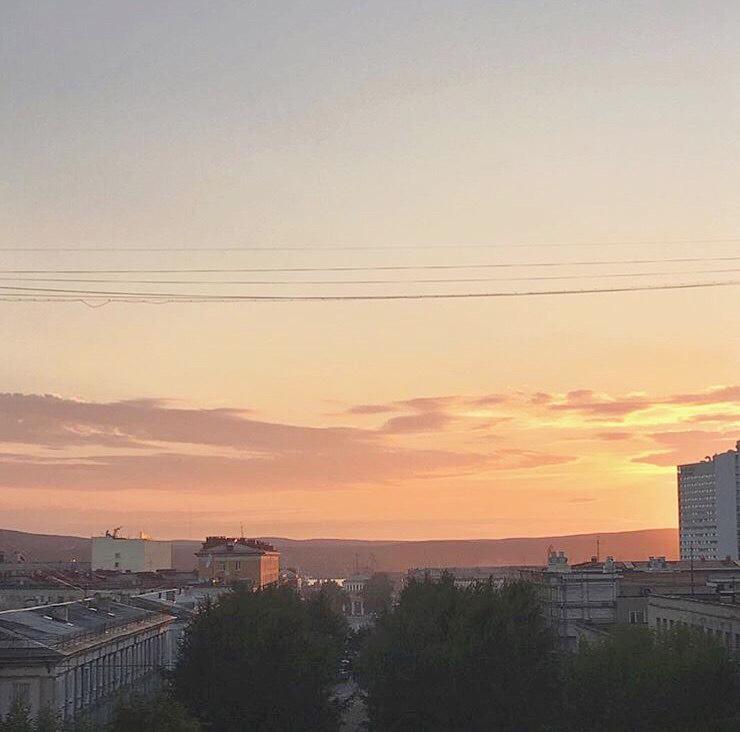
When I recall my time in Murmansk, I often think of contrasts. The first weeks were full of midnight sun and a pressing heat that lay heavily over the city. There was little sleep and much adrenaline. When I went home six months later, I had not seen the sun for nearly two months and the temperature had sunk as low as to -40 degrees Celsius at its coldest. There was much sleep and little light.
Nevertheless, in the biting cold I found the warmest people I have ever met. Many things in Russia are different from how they are at home, and the cultural contrasts are larger than the short ride across the border. This is a drive filled with history and contradictions, and the distance often felt further away from Oslo than Vancouver. However, such distances are erased between people and neighbors. When you get to know Russians, you create meaningful and strong friendships for the rest of your life. It takes time and effort to understand our neighbor. Nevertheless, that is what fascinates me and makes me happy. Having knowledge of Russia is more important than in a long time, and you acquire that through working, traveling or studying here.
During the weekends, I made friends with students and other interns in St. Petersburg and Moscow, and I got to participate in the exciting start-up of ANSA Russia, the Association of Norwegian Students Abroad's local chapter. Some weekends I would stay at home in Murmansk and explore the city together with local students from the university. One of the most memorable experiences was our trip to the Solovki Islands in the White Sea. We had to take a 12-hour train towards Moscow to get there, and then travel by boat for a couple of hours. We got to see the reality along the dilapidated Russian countryside here, which proved a stark contrast to big city life. Different people would arrive and exit with each stop, everyone with their individual story to tell. We made new friends on the train while drinking tea and eating pirogues.
The Solovki Monastery is one of the oldest and largest monasteries of Northern Europe. It is also one of the first places in Russia to be listed on UNESCO's World Heritage List – being most peculiar, isolated and beautiful. However, this idyllic place was also home to Stalin's most dreaded prison camp. The islands were described as so isolated that screams from here would never be heard. I will carry those contradictions with me for a long time.
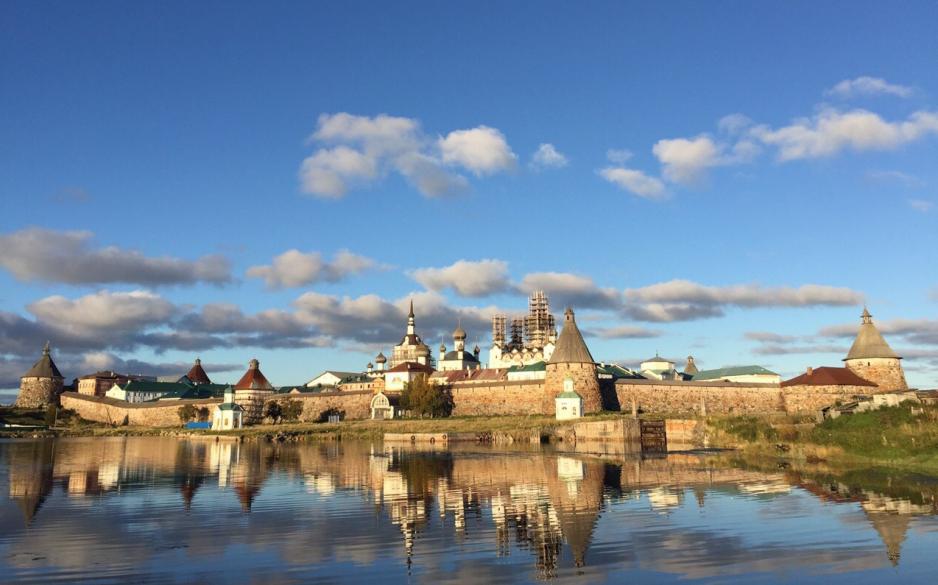
My internship period in Murmansk has developed me both professionally as well as personally – and it has given me a healthy appetite for more. I moved north of the Arctic Circle with expectations tingling inside and knew little about what my everyday life would look like (yes, I was nervous!). Six months later, I left a city that became my third, or maybe even second, home. I still meet people who think I am joking when I say that I lived in Murmansk. Such conversations are demanding. That is exactly why I am grateful for the opportunity to discuss the discrepancy between ideas and realities, as well as to encourage others to move to places that are somewhat 'different'. Through conversations like that, we all contribute to gathering perspectives in a world that keeps getting smaller. Now I am moving on to London and a Master's Degree in Migration and Public Policy. In all likeliness, my thesis will focus on – precisely – Russia.
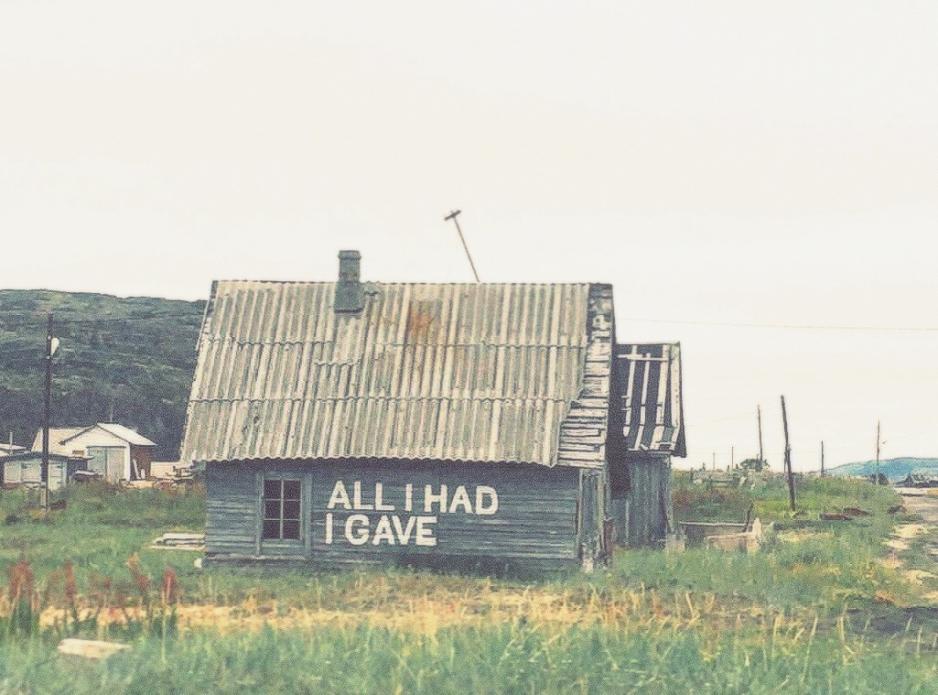
Erika Vartdal is 22 years old and comes from Ålesund, Norway. She holds a bachelor's degree in political science from the University of British Columbia in Vancourver, Canada, focusing on High North policies, indigenous people's rights and security policy. At the time of writing she is back in Norway while being engaged with The Arctic Institute. This fall she will move to London to pursue a master's degree.
This article was published yesterday on the ANSA (Association of Norwegian Students Abroad) website, and is republished on High North News with Vartdal's permission.
